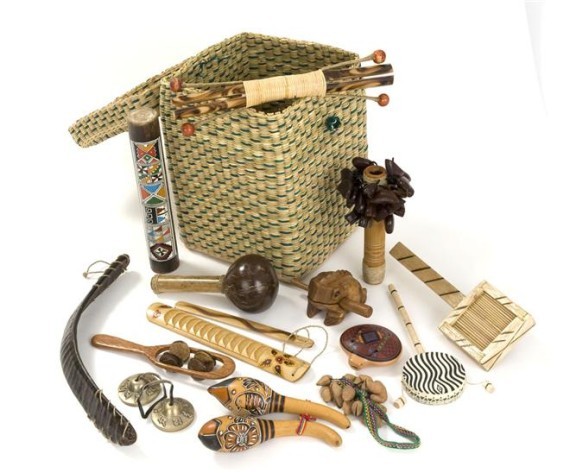
Music forms an intrinsic part of human culture. It is all around us: on the television, in theatre, cinemas and movies. It is present in worship and celebrations, military ceremonies, it keeps us company on the drive to work courtesy of the car radio or CD player and even during our holidays when our favourite bands play to us through our earphones. But nowhere is it more important than how we use music with children.
Music has the capability to ignite all areas of a child’s development and by exposing children to music from an early age it can help social and emotional function as well as improving motor skills and hand to eye coordination. Music also encourages children to learn sound and rhythm and should the music move them to dance this builds motor skills, self-expression and confidence. Picking up a musical instrument, even if it’s a percussion instrument for kids, can give shy children the confidence to break out of their social shell because making music is a dynamic social learning experience.
Children can work as part of a team each contributing to the tune in their own way. The joy of making music is that there is no right or wrong tune. Whatever notes the children choose to put together they ultimately learn to work as a team building cooperation, sharing, compromise skills and concentration, valuable lessons they will need in later life.
Music can also teach other less obvious social skills. In a world that seems to be full of instant gratification, learning that they must each wait their turn until it is their time to join in the tune inadvertently teaches children patience. It also provides a bridge between children of different abilities and needs. Music is a universal language and it has the wonderful advantage of full peer participation no matter who the child is or what needs they may have.
Music can also help a child’s mental development as music stimulates the same part of the brain used for reading, maths and emotional development. In older children music can also teach discipline, vital for learning and studying in later life. There is a music joke that goes something like “Excuse me but how do you get to Carnegie Hall?” Instead of the expected directions the answer is “practise, practise, practise”.
So, whether children are singing nursery rhymes or scoring their own masterpiece on the drums, classroom percussion instruments, glockenspiel, chime bars or even on outdoor xylophones there is never a downside to bringing children and music together. Music can enrich and enliven the lives of children of all ages so it is never too early to let them loose with the instruments and see what music they can make!
Originally written 12 November 2015